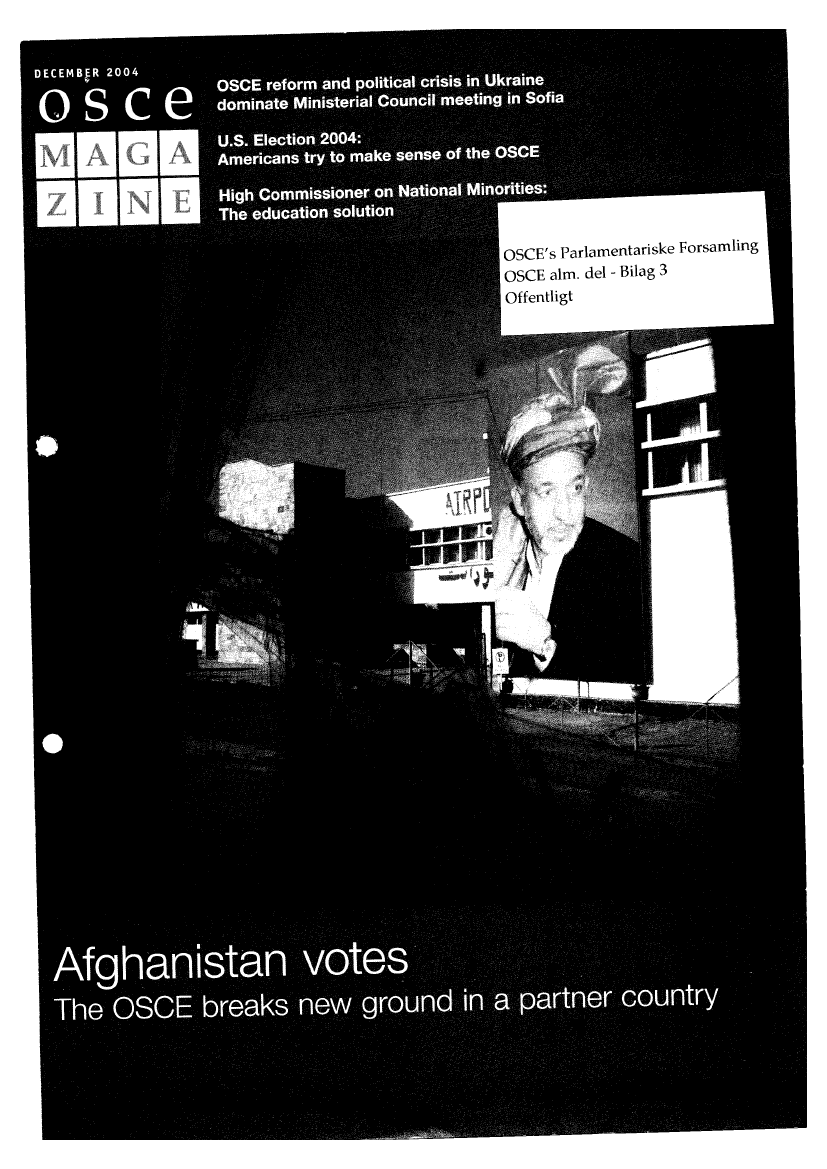
DECEMBER 2004
0
III
!MOE
e
OSCE reform and political crisis in Ukraine
dominate Ministerial Council meeting in Sofia
U.S. Election 2004:
Americans try to make sense of the OSCE
High Commissioner on National Minorities:
The education solution
Forsamling
OSCE's Parlamentariske
OSCE alm. del - Bilag 3
Offentligt
"3"
44?
7
Afghanistan votes
e OSCE breaks new ground in a partner country
Th